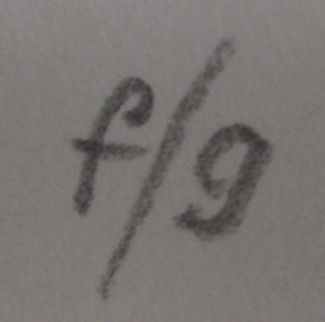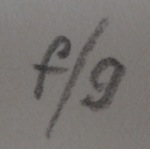Or, Have You Talked to Your Children About Media?
Taught a grade 5/6 class in rural Ontario on Friday (January 15th, 2016). Ten- and 11-year-olds. An introduction to thinking about the effects, as opposed to simply the uses, of technology — which is what the point or goal of “media literacy” should be. Critical engagement. Media Criticism. This was the first time anyone had talked to them in such terms. It is both a privilege and a responsibility.
Figure and Ground: a technique for seeing the whole situation
We talked about ‘figure and ground’ where ‘figure’ is any given technology (like smart phones) and ‘ground’ is everything that goes along with it — electricity, software, manufacturing, education, internet, networks, money, et cetera — all the things that make the technology possible, and all the things that the technology makes possible. ‘Ground’ here is what is meant by ‘medium’ in the McLuhan sense — “an environment of services and disservices”.

An example of Marshall McLuhan’s annotation for ‘figure/ground’, from his library.
We spent quite a while making a white board fill with examples of those things needed for the smart phone to work. Also, all the things we use it for. The youngsters were engaged and having fun.
Then we talked about what would it look like if tomorrow smart phones didn’t work, and weren’t going to work. What would the effect be on their lives, on the world?
Then the internet. What would their lives be like without the internet?
Then electricity. What if we took away electricity?
The point being, that there’s a whole range of things to consider about technology, aside from the obvious i.e. what we can do with them. Technologies change the world, change us. Before you know it, they’re such a part of our lives that we’d be almost helpless without them. They change us socially, and neurologically.
The point being, that considering the ‘bigger picture’ (ground) allows us to make informed choices — fair trade, vegetarianism, shopping locally. Consumers have choices to make which can impact not just their immediate lives. Developers have choices to make as well, that have serious consequences. And if we ever got our stuff together on a large scale, we could decide what we want our societies to be like rather than coping with the fallout from the consequences of decisions we didn’t know we were making. I know, big words.
The point being, that it’s high time we started conversations like this with young people.
I left them with this distillation of that discussion: “We shape our tools and thereafter our tools shape us.” They got it immediately.
Andrew McLuhan is the grandson of Marshall McLuhan and a great friend of Planet Waves. This piece originaly appeared on the site Medium.com on Jan. 16, 2016. Please share any comments you may have here, or you may reach Andrew at andrew@umeom.com


Thanks for this, Andrew. So how did the kids relate what they learned to their own experiences? Did they give you examples illustrating your point?
BTW, readers (especially of the younger persuasion) are welcome to discuss here how they experience technology shaping or changing them.
To kick off with one example, I notice Facebook will sometimes not allow me to log out. I have to close and re-open the tab. I think today’s apps are often designed to remove the security process one normally goes through with passwords, etc. and to keep us logged in. I assume this allows sites to collect data on us, while giving us all the veneer of convenience.